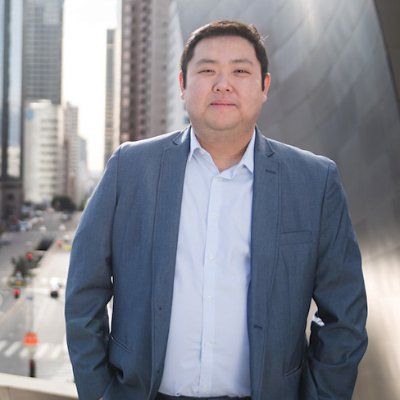280: Angel Investing and Shiny Objects!

Podcast: Download
As a flaming entrepreneur I had a serious problem when I was a young man: Shiny Object Syndrome.
After surgical residency, I had a couple of major business successes. Having never failed in business before, I kept pushing the limits.
It wasn’t about the money back then. You see, natural entrepreneurs like me enjoy money—no doubt. But we use it mostly as a way to keep score.
If you create a successful business, you make money. That means you win the game. If you don’t make money, you lose.
At first it wasn’t a big deal. I was tinkering with businesses that were costing me thousands of dollars but I was already making seven figures.
Then, I made a major mistake. I pushed the limits on the goose that was laying the golden eggs. I tried to expand a highly successful business way too fast while financing it entirely myself.
It was a big gamble. In fact, had I won that one, it would have been game over. But I lost. And losing this one was a big deal because I killed that gold laying goose!
I was millions of dollars in debt and things only seemed to get worse (it’s a long story).
In fact, the reason I survived that big mess was because of something boring I was doing on the side. You see my dad has been a real estate investor all his life. I grew up thinking that real estate was the only conservative investment.
So while I was tinkering with shiny objects, I also decided I would buy apartment buildings like a grown-up the way I was taught.
Admittedly there was some luck involved, but the buildings I bought during those early years ended up yielding about 500 percent return in less than 5 years—enough for me to sell them and bail myself out of the big mess I had made.
The whole thing was a big lesson for me. Sure I saw cash flow from those buildings but I only truly appreciated the equity growth that had occurred at divestment. It was a real eye opener. Too bad I had to spend it all paying off the sins of bad decisions made by me and my management team.
This all happened pretty quickly after residency so I was fortunate to have plenty of time to recover and re-build myself. When I retired from medicine and became a full time investor 4 years ago, I still had to control my impulses. Shiny objects existed not only in the business world but with investments as well.
I made some stupid investments in exotic things early on as well but quickly learned that the only asset class that was consistently making me money was real estate.
I had to keep repeating a mantra to myself that I continue to do every day: “boring is good”.
There is nothing sexy about working class apartment buildings. You’re not going to brag to your friends about owning them or drive by them with a ton of pride. They are often ugly and in areas you might not even want to drive through.
But in the right hands, they consistently make money. In many cases, the returns themselves are quite sexy. My lifetime annualized returns on real estate are probably 40-50 percent all in.
So, even though it seems boring, every year the vast majority of my investable income goes into apartment buildings. Do I invest in riskier stuff? Yes but it’s calculated.
10-15 percent of my investable assets now go into things that could potentially create a meaningful change in my quality of life. What’s a meaningful change? Well, it’s going to be different for everyone but it usually means adding some zeros to your net worth.
On the other hand, I approach those investments knowing and being ok with the possibility that there will be no return of capital at all—like the Maserati I bought last year.
There are some people, however, who make their living entirely on the asymmetric side of the investment world. This week’s episode of Wealth Formula Podcast features one of those guys: Jonathan Hung. If you are curious about the world of angel investing, make sure you tune into the show!

Jonathan Hung is a transformative Los Angeles angel investor and venture capital partner who believes in a bright future for businesses seeking to broaden their horizons in North America and Asia. One of the most active angel investors in Southern California, his mission is to drive value creation within each portfolio company. In support of this mission, he serves as Co-Managing Partner at Unicorn Venture Partners and Senior Venture Partner and Head of Due Diligence at Expert Dojo providing a hands-on approach to supporting companies by offering strategic expertise in operations management, finance, business development, multinational business strategy, entrepreneurship, networking, data analysis, and leadership.
Jonathan and his team target investments in US companies that have global market potential with a focus on long-term growth expansion to East Asian markets.
In addition to providing venture capital funding and advisory support, he also provides business mentorship based on his experience running U.S. and China offices as the President of United Overseas Textile Corporation. Jonathan was also a Managing Member for his family office fund, J Heart Ventures, which made investments in start-up companies such as Gyft, ChowNow, Miso Robotics, Clover Health, Bitmain, etc. He also leverages various degrees from the University of Southern California, London School of Economics, Massachusetts Institute of Technology, and The Wharton School at the University of Pennsylvania.
Jonathan believes that every start-up/portfolio company regardless of industry and size can take full advantage of his genuine approach to mentorship. Jonathan specializes in early-stage investing and the formation of strategic business partnerships. He invites connections with any professional who shares his passion for the technology and consumer market sector, entrepreneurship, and venture capital.
Shownotes:
- Angel investor vs. venture capitalist
- How to choose companies to invest in
- How much does Jonathan actually participate in running the companies that he invests in?
- What kind of projections would you typically see from an angel fund?
 Send Buck a voice message!
Send Buck a voice message!



